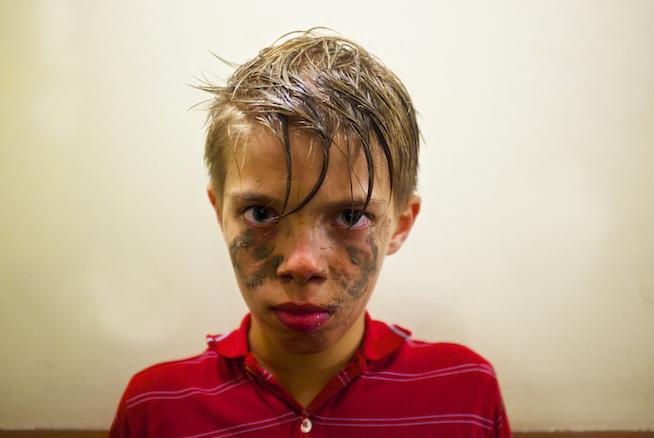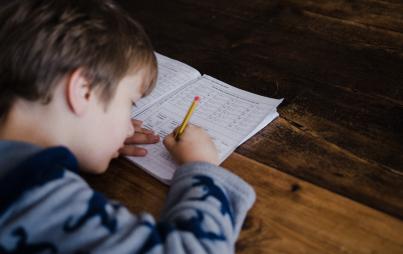
Is it just me, or is our society’s youth today really struggling with respect? I’ve worked with kids for years and I’ve got three children of my own. Things that didn’t fly when I was a kid (and that wasn’t so long ago!) are either ignored or let go. An example: I’d never even dream of calling my teachers or parents by their first name.
I’d like to debunk some myths about raising respectful children, so we can get to work on fixing the problems we are seeing right away.
Myth #1: It’s OK that children don’t say “please” and “thank you.” They’ll learn. Wrong! I learned that you have to start right from the second they pop out, reminding them over and over again, thousands of times, to say “please” and “thank you.” Gratitude doesn’t come natural in the wiring of a typical human being. Don’t think your kid will just learn. You have to train them from when they’re very young.
Myth #2: My parents owe me all the privileges I have because I didn’t ask to be born. Whatever! Did you drive your kids to school when they missed the bus? Sounds like a privilege to me! Did you rush home after working all day to make supper for them, and then serve it to them? Also a privilege. Privileges aren’t limited to luxuries like iPad, iPhones, and lavish trips. Everything you give or do for your child is a privilege. Yes, they do owe you gratitude and you are doing them the favor by requiring them to express gratitude for each and every thing you do for them.
Myth #3: It’s fine to call my teacher and parents by their first names; we’re equal in worth after all. This is not about worth. It’s about creating a sense of awe and respect. All of us will eventually acquire life wisdom and age to the point of being “wiser and older.” Children are equally valuable and deserve respect as much as adults. However, this does not mean the treatment is equal. If you’re a kid, you haven’t earned the wisdom and right to be a mentor yet. You’re equal in value, but not in status. Allowing kids to call adults by their first names devalues the status and wisdom rightfully due to an older person, and decreases the child’s awe of those older and more experienced than they.
Myth #4: Rules constrict children’s creativity and cause them to be anxious. Wrong again! Children may fight us, but by nature they want us to be in control and protect them. They test us to see if we care and will stay in control. Rules are there to give them structure, protection, and a sense of what’s right and what’s wrong. It’s the foundation of building morality in a developing human being.
Myth #5: Kids can have their own opinions and correct their parents. Children are human beings, and they see and understand the world differently than adults. Due to lack of experience, their understanding and perceptions are more flawed than adults’. They deserve respect and to have their opinions heard, but allowing them to correct or negate a parent enables a sense of overpowering the adult. This is breeding grounds for further disrespect and undoing of any attempts to teach them basic morality. Without insulting or hurting them, it’s important to remind them that it isn’t respectful for them to be correcting adults, even if they are correct.
Myth #6: I should make different meals every day according to each child’s interests. I have a rule in my house: this is not a restaurant. If a child doesn’t like the supper I made, they are welcome to make themselves something. Since my kids are young and aren’t able to use the kitchen equipment safely yet, this typically amounts to cereal and milk. Kids need to learn that their parents are not their personal servants or chefs, and what is provided for them is what they get.
Myth #7: Fighting with my spouse in front of my kids doesn’t affect them. The earliest example children receive about social relationships that they will take with them in life is their parents’ interaction. If parents fight, it makes kids feel insecure. They try to test the parents with disrespectful behavior to see if the parents are working together as a unit or are divided. They are frightened when the parents don’t act as a unit and begin to argue in front of them. It also teaches children that disrespect is an effective form of communication and getting what they want. This isn’t exactly socially effective in the work world or for making friends in school.
Myth #8: Yelling at my kids doesn’t harm them. Also untrue. Yelling has been linked to later mental health problems in developing children. You might get what you want now, but as they get older, they start to get used to your yelling and tune you out. Then, you have to yell louder. Try another approach!
Myth #9: Let them choose their own friends! Remember, kids are looking for their parents to protect them and take charge. You should know who your kids’ friends are and what families these friends come from. Who our kids hang out with influences and shapes their outlook. Be involved or be sorry!
Myth #10: It’s not a big deal if the house is a mess! While we do have to pick our battles and some level of mess is inevitable when your kids are little, a clean, orderly home is very important. Children feel as much out of control and uncomfortable as you do when they live in a cluttered, unflattering environment. If you can’t clean up yourself, get extra help to come regularly to do the big cleaning for you.
Myth #11: Kids don’t have time or don’t need to help around the house, as they are busy enough. Triple wrong! Kids will be more secure and responsible adults if they’re required from a young age, to take on chores around the house. They’ll feel a sense of accomplishment and part of an interdependent system. It makes them learn better organizational skills and teaches them life skills in how to be good future spouse, employee and friend.







